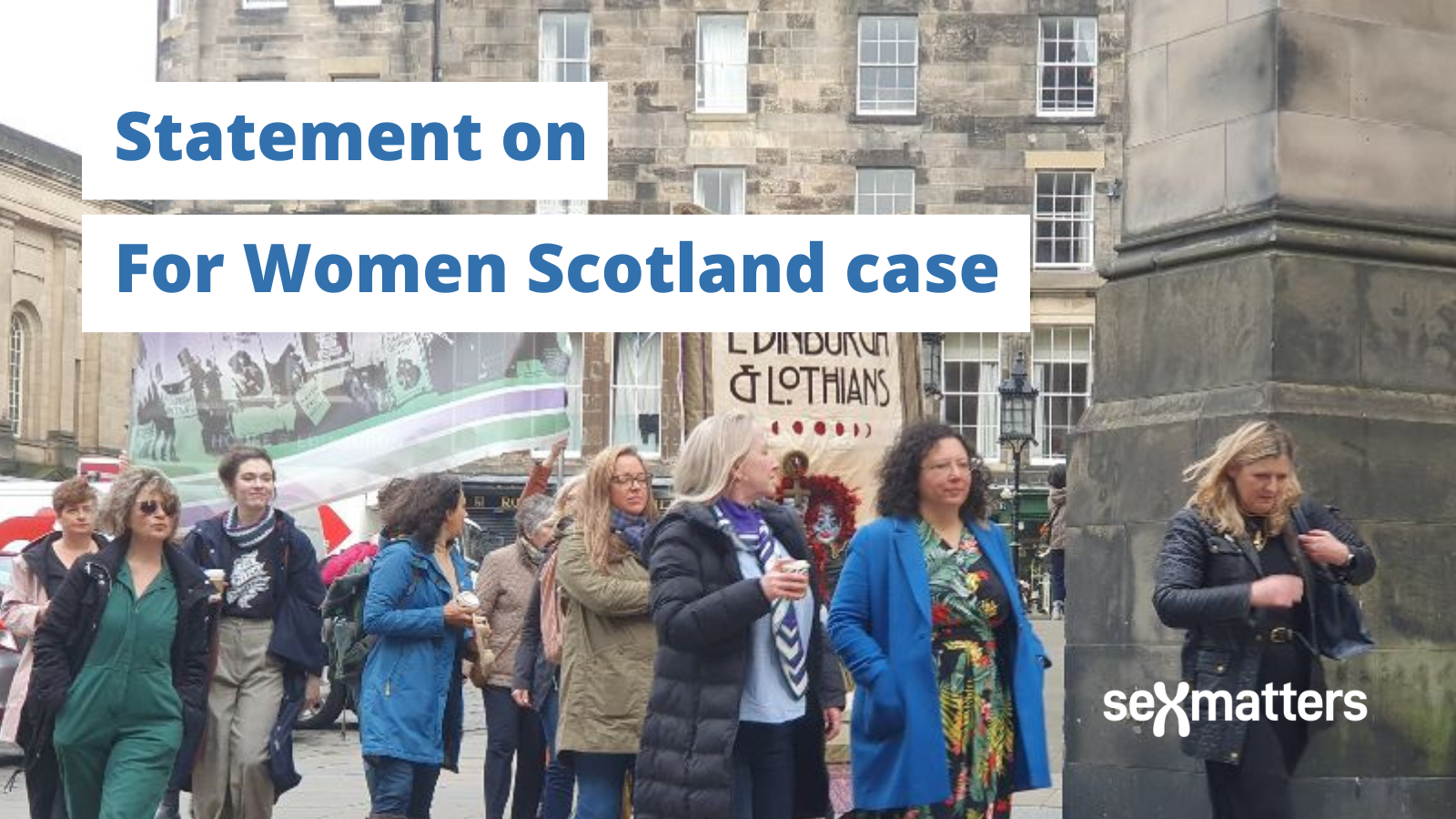Court rules that GRC changes sex for the Equality Act

For Women Scotland’s appeal against the Haldane judgment that a GRC changes a person’s sex in relation to the Equality Act has been rejected.
In the case of For Women Scotland v The Scottish Ministers [2023] CSIH 37 the Court of Session has handed down a judgment that:
“a person with a GRC in the female gender comes within the definition of “woman” for the purposes of section 11 of the Equality Act, and the guidance issued [by the Scottish Government] in respect of the 2018 Act [ Gender Representation on Public Boards (Scotland] is lawful.”
Read For Women Scotland’s statement in response.
Sex Matters’ statement
Sex Matters intervened in the case.
We applaud For Women Scotland for bringing this case, which is an important step towards forcing more clarity on how the law defines the words “male” and “female” and “man” and “woman” in different contexts.
While the outcome is disappointing, we welcome the judges’ finding that “those without a GRC remain of the sex assigned to them at birth and therefore would have no prima facie right to access services provided for members of the opposite sex”.
The judgment leaves many issues unresolved, such as issues around freedom of association in single-sex associations, and the assertion that discrimination in relation to pregnancy, maternity and breastfeeding is not a form of sex discrimination.
The judgment’s assertion that there is no such thing as being ‘legally lesbian’ does nothing to resolve the issue of whether lesbians can legally form associations which exclude men who identify as lesbians and who have a GRC which deems them to be female.
The judgment emphasises that this is an area “where there is intense public debate” and that “at its heart are matters of social policy which are best addressed by parliaments”.
We continue to call on the UK government to resolve the issue using secondary legislation to clarify the meaning of sex in the Equality Act.
